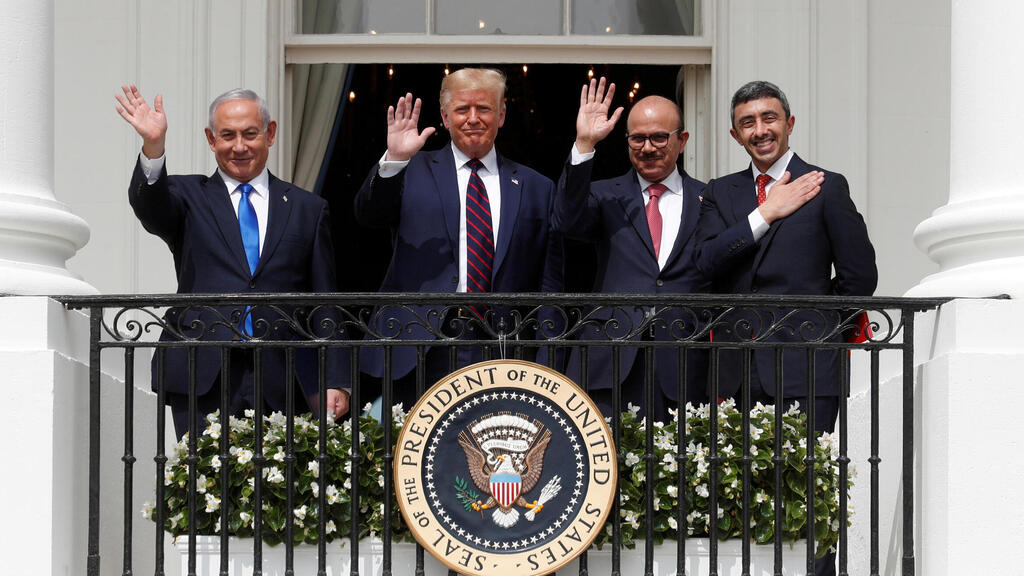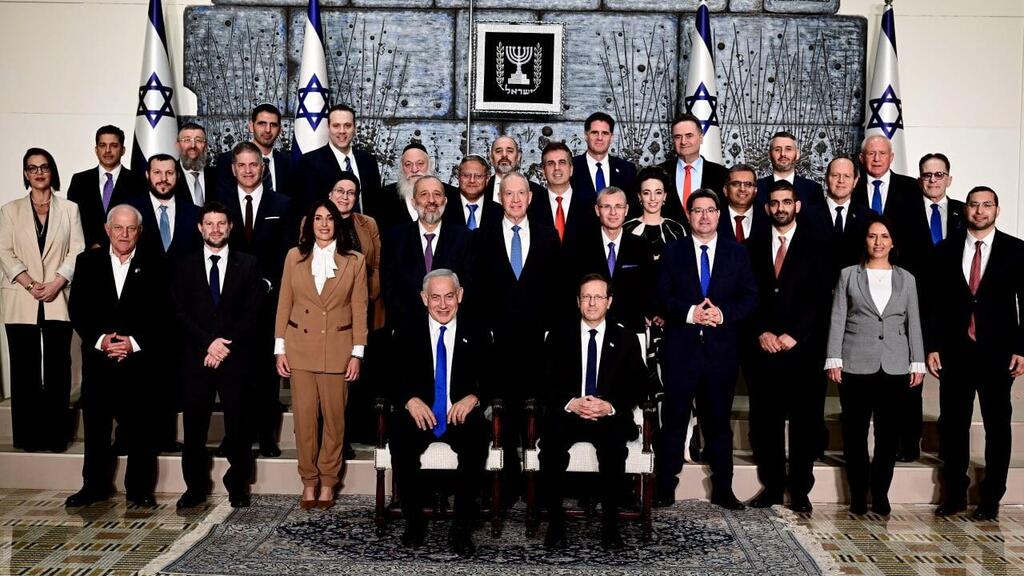Prime Minister Benjamin Netanyahu said in a speech to the Knesset, the Israeli parliament, last Thursday as he took office once again, that one of the main goals of his new government would be to seek further normalization between Israel and the Arab world.
“The third task is to continue to expand the circle of peace with Arab countries in order to put an end to the Israeli-Arab conflict,” Netanyahu said. Palestinian analysts, however, believe Israeli normalization with the Arab countries will not advance further.
The 37th Israeli government swore in on last week, nearly two months after parliamentary elections were held on November 1. With it, Netanyahu returns to the premiership after a year and a half out of office. In his last term as prime minister, in the context of the Abraham Accords, Netanyahu achieved normalization of relations with four Arab countries: the United Arab Emirates, Bahrain, Morocco, and Sudan.
When Netanyahu speaks of further normalization with Arab countries, Saudi Arabia is one of the countries in the spotlight due to various recent developments in the informal relations between the two countries.
As a response to Netanyahu’s speech on Thursday, the outgoing prime minister, Yair Lapid, said that his administration was responsible for paving the way for the normalization with the Saudi kingdom.
However, Ghassan Khatib, professor of contemporary Arab studies and international studies at Birzeit University, located in the West Bank, does not believe that Israel and Saudi Arabia will normalize ties.
4 View gallery


Yair Lapid in the opening ceremony of the Israeli embassy in Bahrain
(Photo: Elisha Ben-Kimon)
“I think the [Israeli] normalization with that part of the world has reached its limit,” he said.
He argues that Netanyahu’s claims of possible normalization with Riyadh are not real.
“Netanyahu is a PR person rather than a politician,” he said. “He will leave everybody under the illusion that he is going to make miracles in terms of his relations with Saudi Arabia, but I have doubts that he will succeed,” Khatib added.
Likewise, Nihad Abu Ghosh, a Palestinian analyst from Ramallah, does not believe that Israel and Saudi Arabia will reach a normalization agreement until the Palestinian issue is solved.
Saudi Arabia is a central actor in the Arab and the Islamic world, he says, adding that given its position, normalizing with Israel would be questionable.
“It is difficult for its leadership to take a controversial step like this,” he says. Abu Ghosh added that this is especially true as Saudi Arabia is the sponsor of the Arab Peace Initiative, which was adopted by the Arab League Summit in Beirut in 2002.
“Normalizing with Israel without solving the Palestinian issue is contradicting the substance of the Arab initiative,” he notes.
Abu Ghosh says that on this issue, there are also divided opinions among the Saudi royal family.
Relations between Israel and the Palestinians are considered crucial for Israeli normalization with Saudi Arabia, and Khatib believes they are expected to deteriorate as the new Israeli government takes office.
“This new government is bad news for the Palestinians, and for Palestinian-Israeli relations,” he said. “We’re expecting this government to bring policies that will further worsen the relations between Israelis and Palestinians,” he added.
On that matter, he says, there is a consensus among Palestinians.
Abu Ghosh notes that Palestinians agree that the upcoming Israeli government “is the most extremist right-wing government in the conflict’s history. This comes as a conclusion from knowing the team members and their past, their programs during the elections campaign, and from the coalition agreements,” he said, adding that this view is unanimous among Palestinians.
But he adds that what may differ is the approach to the situation that different groups in the Palestinian society consider appropriate.
On one hand, he says, there are President Mahmoud Abbas and his supporters, who, according to Abu Ghosh, tend to call on the international community to interfere on their behalf; while there are other groups in Palestinian society “who call for a comprehensive intifada [popular uprising] and a more militant struggle,” he said.
In any case, said Khatib, “I don’t think that there is anybody on our side who has any illusions in this regard, in terms of political relations with Israel.”




